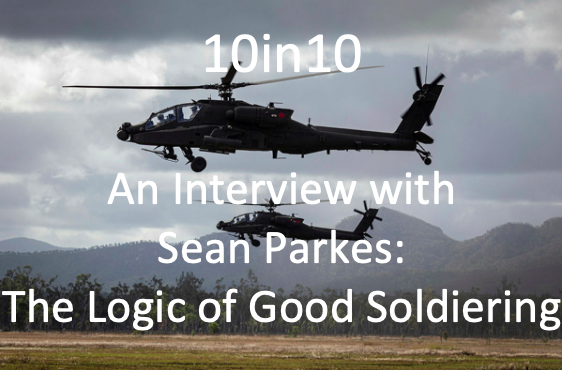Samuel Cox (SC): Can you give me the BLUF (bottom line up front) of Good Soldiering?
Sean Parkes (SP): Good Soldiering promotes an enduring culture of optimal performance: as individuals, as teams and as an Army. The 21st Century combat team needs an open architecture approach: one that can quickly integrate new team members from well outside Army, including from joint, academic, industry and other partners, to deliver effects at short notice.
We’re now linking culture to capability. Optimising culture can realise extra potential and performance; it is why companies and sporting teams focus on their culture to develop a competitive edge.
It’s simple: do you want to be on a winning (high performance) team on the future battlefield? If so, then you need to recognise that culture is incredibly important. Good Soldiering is Army being proactive on its culture because, just as you can’t surge trust, you can’t surge an optimal culture. It takes time and deliberate effort.
SC: Does the current 2-3 year posting cycle enable cultural development to be supported and progressed, or does change only lead to uncertainty and confusion?
SP: We need to be comfortable with change. Army’s teams will have to aggregate and disaggregate really quickly, particularly on the future battlefield. We need to judge our people based on their capability to achieve that. That willingness to team quickly will actually work well with the posting cycle as people will understand they need to build relationships and trust really quickly in order to deliver on a team mission or task.

SC: What is meant by ‘followership’?
SP: A good follower brings a high level of individual readiness, professionalism, fitness, health, and mental wellbeing to the team. A lot of people in our Army don’t understand this is one of their responsibilities to their chain of command. There is an interdependence between achieving good leadership through good followership.
We strive to develop excellent leadership, but where do we develop followership? That’s actually a huge part of what we do when we’re supporting our boss and our chain of command. We need to shift our mindset and hold ourselves accountable as professional followers.
Retired General Stanley McChrystal [a former U.S. commander of the International Security Assistance Force in Afghanistan] talks about flattening hierarchical structures in favour of shared consciousness and de-centralised responsibility held at the junior level. But that only works with professional followership. Our Army hasn’t mastered this yet, but democratising responsibility to trusted followers (which is true mission command) is one of the ways we’ll continue to punch above our weight to achieve exponential effects and outcomes.
SC: What do you think is the most important issue facing Army right now?
SP: The fight for talent. A middle power army punches above its weight when it accumulates talent. We are competing to recruit from a limited national resource pool of people who can serve in the current Army. With talent you can do pretty much anything, so having the best workforce possible, teamed with technology, with the right culture, for the size of the army we’ve got, is key. Culture is a key recruiting and retention mechanism. Everyone wants to be part of a winning team. A great service with a great culture becomes an employer of choice.
The full interview with Colonel Sean Parkes continues here.
Colonel Sean Parkes has had a range of command and staff appointments in Army and the Army Joint Staff, and an industry outplacement with General Motors Holden. He has commanded at all ranks, including Unit and Task Group, and with multiple operational service tours in East Timor, Iraq and Afghanistan. He has been awarded the Distinguished Service Cross, Distinguished Service Medal and a Commendation for Distinguished Service. He has served as the Director of Workforce Strategy in Army Headquarters.
It helps to know what is happening when you challenge the accepted. 10in10 is an interview series designed to share insight into future-leaning work across the Australian profession of arms. One interview will be released every day for 10 days. You can find previous interviews here.
About the Author: Samuel J. Cox is the editor of Grounded Curiosity. You can follow him on Twitter via the handle @samuel_j_cox

